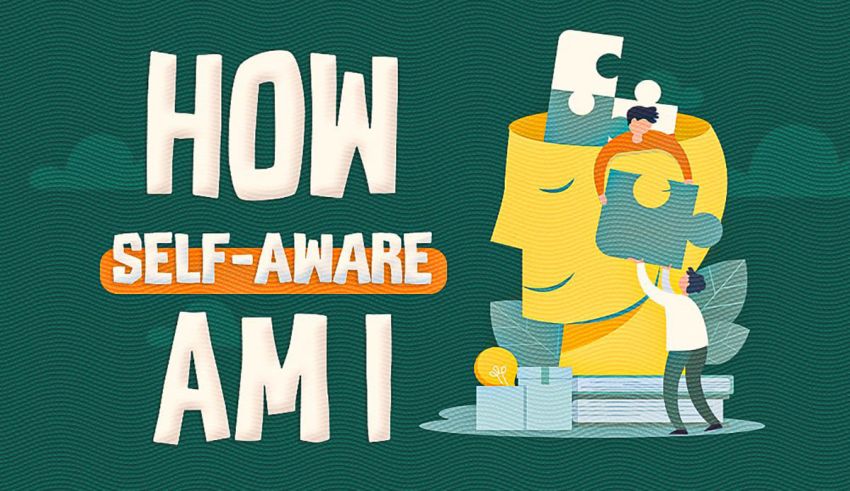
Self-awareness is an introspective mindfulness of who you are. It is the internal knowledge, the sense of self, that identifies and clarifies your thoughts, emotions, and identity.
With this quiz, my goal is to expose how self-aware you are—and explain if being as self-conscious as you is actually good or bad.
Are You Self-Aware? 5 Subtle Signs You Are
You are considered self-aware if you can take feedback without overreacting, display empathy towards everyone regardless of your biases, adapt to changes and new situations, maintain a clear sense of self, and manage your emotions effectively.
In a way, self-awareness results from personal development and emotional intelligence. As you invest time in exploring your inner world and finding peace within yourself, you gain a heightened awareness of your “self” and can identify your identity more clearly.
You are Open to Feedback
Being self-aware involves listening to others’ comments, whether positive or negative. When you acknowledge that you’re not perfect, you allow others to point out your weaknesses or flaws, leaving room for constant improvement.
You Have Unconditional Empathy
A self-aware individual is attuned to others’ emotions, responding to and taking them into account when making decisions. Their logic is straightforward: if I desire appreciation, others likely feel the same way.
Adaptability Is Your Strong Suit
Flexibility aligns with self-awareness, as a person with keen personal insights embraces change. They allow life to unfold naturally rather than trying to force it to conform to their desires.
Your Self-Identity Is Clear to You
The journey to understand oneself is ongoing for a self-aware individual. Nevertheless, those people have a firm grasp of their identity; they uphold their values and never hesitate to voice their thoughts.
Your Emotions Are Regulated
Understanding the internal ebbs and flows of emotions in your mind aids in maintaining order. A self-aware person, therefore, tends to be emotionally stable, even though, like any other human, they may experience occasional ups and downs.
Is It Always Good to Be Self-Aware?
Too much self-awareness has its own disadvantages. People with excessive internal reflections can become inactive overthinkers; their thoughts may turn into barriers keeping them away from acting upon decisions. It’s also likely for an overly self-aware person to become highly sensitive, to the point where they undergo existential anxiety.
How Should You Increase Your Self-Understanding?
Dr. Tasha Eurich, an organizational psychologist, claims that 95% of people believe that they are self-aware, yet in reality, only 10-15% can genuinely be labeled “self-aware.” This prompts a crucial question: How do we enhance our self-awareness?
Dr. Eurich proposes a shift in mindset: rather than asking “Why,” she recommends focusing on “What.” When reflecting on oneself, refrain from asking, “Why am I this way?” Instead, ask, “What makes me feel this way?” and “What can I do to change?” This action-oriented approach to self-awareness is not only healthier but also consistently yields better results, encouraging individuals to take charge of their lives rather than remaining passive observers.
Find Out How Self-Aware You Are with a Quiz
If you still want to know how much self-awareness you’ve accumulated all these years, take this test. In 15 questions, we give you a detailed assessment revealing your inner reflections and self-knowledge.
Speaking of which, maintaining a balanced life is often an underestimated indicator of self-awareness. To ensure the reliability of your results, consider taking our additional quiz called “How Balanced Is Your Life?”

























